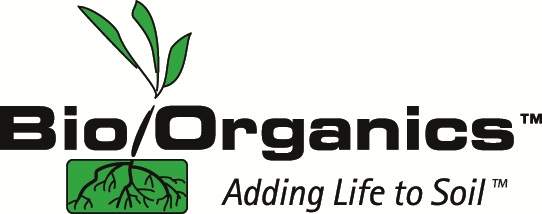In the wonderful world of agriculture (more gamblers than Las Vegas ever sees), there is a desperate need for professional soil advisory services.
No, I don't mean more soil chemistry advisors - there's already an overabundance of them. We're all familiar with conventional soil test routines - dig a sample, check the pH plus a few macroelements, then issue a prescription for "fixing" problems or deficiencies. Very simple and easy to understand - match the soil to the plants.
Well, maybe TOO simple. We seem to have created an entire generation of ag advisors who believe that soil chemistry is the only factor behind crop success or failure, and "add X lbs. of ___ per acre when you're low" is giving good advice.
Actually, soil pH and availability of mineral elements are automatically regulated by natural biological processes, if the right macro (earthworms, etc.) and microbial elements are present in substantial populations. There are whole families of bacteria that efficiently produce nitrogen from the air, and other families that convert phosphorus into a form that plants can use, and then mycorrhizal fungi allow plant roots to uptake needed amounts of those now-available nutrients.
Larger organisms, especially worms, move decayed plant material from the surface of the soil down into the root zone and also transport beneficial microbes from one location to another. This is how wild plants thrive and do not deplete their surrounding soil - it's a team effort and this team of plant helpers can be utilized in agriculture if (and this is a big if) someone knows how to encourage them.
I was delighted recently when a California tomato farmer called to get information about our microbial inoculants. He told me that his local Extension Agent said his soil seemed to lack biological activity, and that could be the reason his yields were falling off! I had never before heard of an Extension Agent suggesting a non-chemical solution to a problem, even though it is well-documented that plants often struggle when their soil biology is not right. Light at the end of the tunnel!
What is really needed now to promote healthier, sustainable, and more productive crop soils is for all ag advisors to learn more about the living components of soil, and then learn how to apply that knowledge to individual fields. I've said it before and I'll keep repeating it: If the soil biology is healthy, then the chemistry for crop plants will also be right. A focus on the biological elements will lead to good soil chemistry; the opposite is not true.
By all means, let's conduct soil tests. But, instead of over-simplistic testing for just NPK and pH levels, let's train ag advisors to do bio-assays at the same time. That information will help growers really understand the living dynamics of their soil, and it should also make them question quick chemical "fixes" that do more harm than good to their soil in the long run.
Might be time to blow the dust off that old soil biology textbook.
Cheers, my friends,
Don Chapman
President, BioOrganics, Inc.
